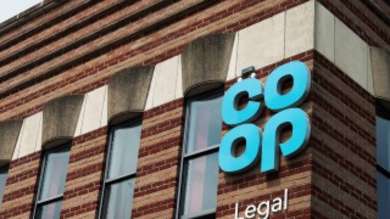
Manual handling or lifting injury claims
If you have suffered an injury because of manual handling or lifting at work, our injury solicitors can help.
Employers have a duty to keep workplaces safe. They are also under a duty to comply with a set of regulations called the Manual Handling Regulations which set out the responsibilities of employers where their employees are expected to lift, move and handle objects or people as part of their job.
'Manual handling' is anything that requires an employee to lift, put down, push, pull, carry or move an object by hand or bodily force.
Responsibility of employers
The Manual Handling Regulations require an employer to avoid the need for manual handling, so far as is reasonably practicable. This might include finding alternatives ways to move or transport objects, such as using machinery or pulley systems. If an alternative cannot be found, before the lifting takes place an employer must:
- carry out a manual handling risk assessment to highlight the potential dangers an employee may face while completing the task
- implement measures that limit these risks, such as providing training and protective equipment
Employers are required by law to have Employers Liability Insurance coverage to pay compensation claims for personal injuries or illness suffered by workers as a result of negligence or fault by the employer.
If an employer does not comply with these regulations and an employee is injured in a lifting accident, or develops an injury over time because of ongoing poor practice, there could be grounds for a work accident claim. This is because an employer has a duty to protect the health and safety of their staff, and a failure to do so will be considered negligent.
When compensation is paid out it is usually paid by the Employers Liability Insurance Company and not by the employer, so there is no need to worry as you would not be suing your employer when you make the claim.
For free legal advice call our Personal Injury Solicitors on 0330 606 9587 or contact us online and we will call you.
Back injuries caused by manual handling or lifting accidents
Manual handling or lifting accidents can cause all kinds of injuries, although they are most commonly associated with back and spine injuries. These may be acute (meaning they occur as a result of a single accident) or they may be chronic (meaning they develop gradually over time, typically due to repetitive tasks).
The Health and Safety Executive reported that in 2016/17, 22% of all non-fatal workplace injuries in Great Britain were caused by manual handling or lifting, and 194,000 people suffered a work-related back injury. Employees across different industries were affected, with those in construction, transportation, agriculture, human health and social work activities especially at risk. See Back Injury Risks Caring for Patients and the Elderly.
But what the statistics don't reveal is just how devastating lifting accidents and manual handling injuries can be. Back injuries in particular can take a very long time to recover from, and can be associated with neurological damage, ongoing rehabilitation and recurring injuries.
All this can adversely affect a person's life. Not only will they have to endure a degree of pain and suffering (which for some may continue in the long-run), their ability to carry out their normal day-to-day activities will also be disrupted. On top of this, the person may no longer be able to carry out their normal work duties, which can lead to financial difficulties.
Manual handling and lifting injury compensation
If you suffered manual handling injuries after lifting or moving an object at work, you may be entitled to claim compensation for pain and suffering, lost pay, out-of-pocket expenses, medical and rehabilitation costs.
Back pain, neck pain, shoulder pain and muscle pains are common symptoms after a manual handling injury and pain levels often prevent people from going back to work. Many injured victims who cannot return to work for weeks, months or longer, find that the only way to recover their lost earnings and expenses after a work accident, is to make a personal injury claim for compensation.
Learn more about compensation ranges for personal injury claims.
Rehabilitation support is a crucial part of a manual handling injuries claim. Once we take on your claim, we will take steps to enable your medical condition to be assessed by a medical expert.
Depending on your specific manual handling injuries and your needs, we may be able to arrange for medical treatments and rehabilitation support to begin right away if there is already strong evidence to substantiate your claim, or if responsibility (fault) for the accident which caused your injuries has already been admitted by the other side.
We offer a free manual handling or lifting injury compensation assessment service to help you understand if your claim has a reasonable chance of succeeding. Just provide us with details such as where you work, the object you had to lift or move, and tell us about your injuries and the situation you are in because of your injuries.
Every year our Personal Injury Solicitors and Work Accident Lawyers secure millions of pounds in compensation for people injured in accidents across the UK. As part of a large ethical organisation we can ensure that you are fully supported throughout your claim, whatever your injuries and your circumstances.
About Co-op Legal Services
As part of the largest Co-operative organisation in the UK, Co-op Legal Services works to ensure that our clients receive the best legal advice and support services available from our teams of personal injury and clinical negligence solicitors, legal executives and staff.
We are regulated by the Solicitors Regulation Authority (SRA) and several of our Personal Injury Solicitors are members of the Association of Personal Injury Lawyers (APIL).
Co-op Legal Services has over 800 staff working in different businesses with offices in Manchester, Bristol, Stratford-upon-Avon, Sheffield and London.
Related articles


